The ability of American democracy to advance the common good relies on the active participation of the nation’s residents. The United States’ diverse religious traditions encourage their members and broader communities to carry out their civic duties. At a time when our democratic processes and norms are coming under increasing threat from voter suppression and from foreign interference, faith leaders are among the many community leaders playing a critical role in strengthening our common purpose.
As civil rights leader and Rep. John Lewis (D-GA) wrote shortly before his death on July 17, 2020, “Democracy is not a state. It is an act, and each generation must do its part to help build what we called the Beloved Community, a nation and world society at peace with itself.” During his last days, he invoked the language of his own Christian faith to encourage participation in our democracy.
Getting out the vote is an act of faith for many Americans. Across political and ideological spectrums, Americans are motivated by their diverse faiths and backgrounds to encourage people to vote.
The Center for American Progress’ Faith and Progressive Policy Initiative has identified 15 of the many faith leaders engaged in nonpartisan voter engagement in 2020. Their work is described briefly below. They also recently participated in email interviews with the authors about how their faiths inform their work. Not only do they represent diverse faith traditions, but they also represent a variety of approaches to this work and are at a variety of stages in their careers.
The Rev. Traci Blackmon
The Rev. Traci Blackmon is the associate general minister for justice and local church ministries of the United Church of Christ, which has an ongoing voter mobilization campaign called “Our Faith, Our Vote.” Blackmon told the authors that the goal of the campaign is “to equip people to vote their guiding life principles above political parties.” This year, the campaign started a Civic Action Center that offers online voter registration and candidate and policy information, combined with moral and theological reflections. The campaign also provides financial support to congregations and communities in need so that they can engage in voter mobilization efforts that help their community members make their voices heard. In 2012, Blackmon created “Souls to the Polls STL,” a multifaith campaign that provided 2,800 St. Louis community members with rides to the polls during local and national elections that year.
The Rev. Blackmon told the authors:
As a Christian, I model my life after the earthly ministry of Jesus, an Afro-Semitic Palestinian who was born into a family of modest means on the less than desirable side of town. Most of Jesus’ public ministry was spent reaching out to those who were ignored in community and underserved by the ruling class. In my quest to follow him, I am compelled to do the same. But no matter the sacred text, people of all faiths share a common mandate to serve and care for our neighbor. It is this unified understanding of goodness that ensures democracy. Government by the people is indeed government for all of the people.
Satjeet Kaur
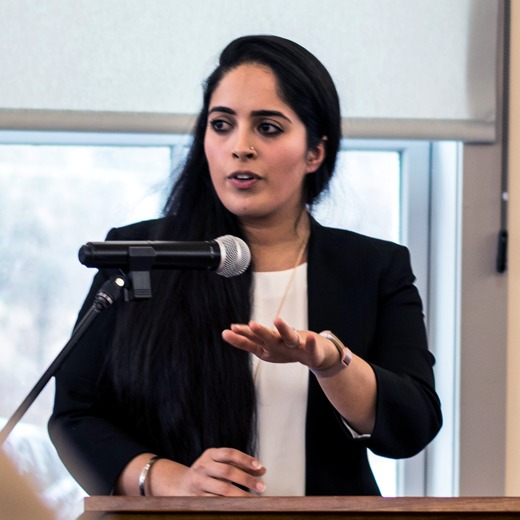
(Satjeet Kaur. Credit: Mehtab Kaur)
Satjeet Kaur is the executive director of the Sikh Coalition, which is mobilizing Sikhs to exercise their right to vote in the 2020 election. Her organization is recruiting and training voter registration volunteers to become get-out-the-vote (GOTV) champions in their local communities. The organization is also providing a free tool for Sikhs to check their voter registration, register to vote, and find out about deadlines and details specific to the elections in their states. And it published a policy brief detailing the civil rights policy priorities affecting the Sikh American community. Kaur began her work with the Sikh Coalition in 2010 as a local community organizer in the San Francisco Bay Area.
According to Kaur:
Sikhi teaches us that we have both spiritual and temporal responsibilities—a concept called miri piri. Actively pursuing justice and equity and serving humanity go hand in hand with our spiritual journey. Using our voice and our vote in an effort to fight for human rights is our responsibility. These principles from Sikhi motivate me to continue our work in civic engagement just as they fuel my drive in our broader efforts to advocate for the civil rights of Sikhs and other religious minorities. Underrepresented communities need to claim the spaces that equally belong to us. This requires us to put in the time and resources to mobilize our communities and bring our voices to the polls.
Rabbi Jonah Dov Pesner
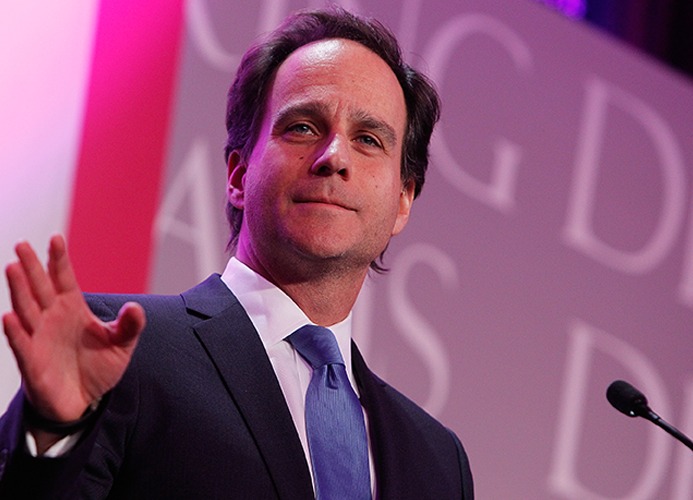 Rabbi Jonah Dov Pesner is the director of the Religious Action Center and senior vice president of the Union for Reform Judaism. The Reform Movement’s 2020 civic engagement campaign is called “Every Voice, Every Vote” and seeks to engage hundreds of thousands of voters. It is focused on achieving 100 percent voter participation by reaching congregations, engaging student voters, and combating voter suppression. The campaign is guided by a belief that its “work is much more powerful when we do it in partnership with communities across lines of difference.” Prior to this role, Pesner served as a congregational rabbi in Boston, where he led nationally recognized efforts to organize multifaith communities for social change.
Rabbi Jonah Dov Pesner is the director of the Religious Action Center and senior vice president of the Union for Reform Judaism. The Reform Movement’s 2020 civic engagement campaign is called “Every Voice, Every Vote” and seeks to engage hundreds of thousands of voters. It is focused on achieving 100 percent voter participation by reaching congregations, engaging student voters, and combating voter suppression. The campaign is guided by a belief that its “work is much more powerful when we do it in partnership with communities across lines of difference.” Prior to this role, Pesner served as a congregational rabbi in Boston, where he led nationally recognized efforts to organize multifaith communities for social change.
Pesner said:
I believe that Jews are called to do civic engagement work as one way to fulfill the sacred mandate of tikkun olam—world repair. The Hebrew word “kol” means both “voice” and “vote.” My Judaism calls me to engage across lines of difference and ensure that access to voting is a reality for all, so that every voice is heard and every vote is counted. The pandemic is an unprecedented challenge to our democracy, and for us as a nation to overcome this challenge, faith communities and social justice organizations must continue to work together to expand how Americans can vote, advance rights legislation, and address persistent discrimination in voting.
The Rev. Billy Michael Honor
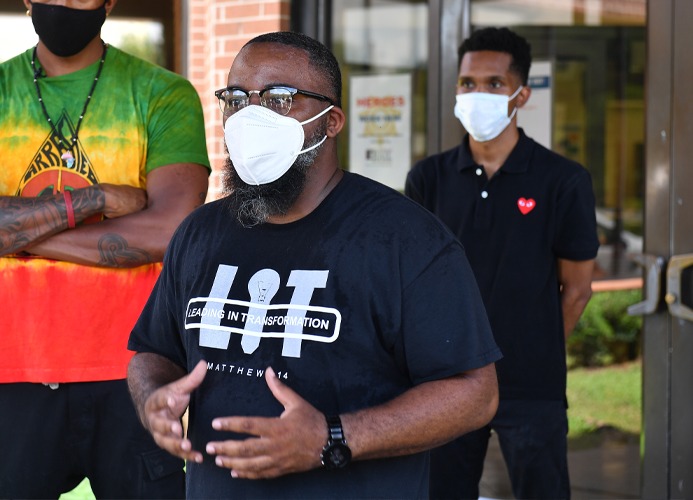 The Rev. Billy Michael Honor is the director of faith organizing for the New Georgia Project. The “Still Strong, Go Vote” campaign organizes congregations across Georgia to demonstrate their resilient strength and civic power, despite the challenges of COVID-19, by turning out voters in November. The campaign has a goal of mobilizing 100,000 people of faith in Georgia to pledge to vote in the 2020 elections. Honor is the former organizing pastor of Pulse Church in downtown Atlanta and a frequent commentator on the intersection of theology, race, and cultural criticism.
The Rev. Billy Michael Honor is the director of faith organizing for the New Georgia Project. The “Still Strong, Go Vote” campaign organizes congregations across Georgia to demonstrate their resilient strength and civic power, despite the challenges of COVID-19, by turning out voters in November. The campaign has a goal of mobilizing 100,000 people of faith in Georgia to pledge to vote in the 2020 elections. Honor is the former organizing pastor of Pulse Church in downtown Atlanta and a frequent commentator on the intersection of theology, race, and cultural criticism.
The Rev. Honor told the authors:
My faith motivates my work because I believe the gospel compels us to love God with our hearts, souls, and minds and to love our neighbors as ourselves. I believe civic engagement through voting is one of the best expressions of this commitment. Faith communities are important to the work of building a more inclusive democracy because at their best they provide moral imagination to help envision more just ways of being a nation. And at other times, faith communities have played the important role of being the voice of conscience when the country has failed to live up to its espoused moral values.
Diane Randall
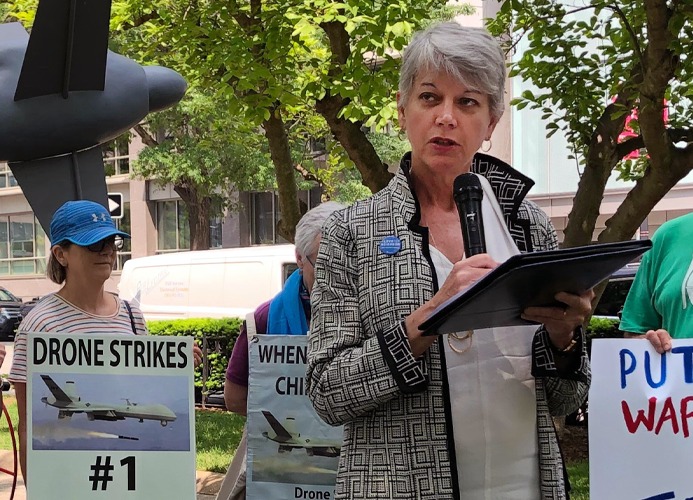 Diane Randall is the general secretary of the Friends Committee on National Legislation (FCNL), which is focusing on an initiative to reach young adults in the FCNL network, encouraging them to register to vote and reach out to their friends to register and to make a plan to vote in the upcoming elections. The FCNL has also designed questions for candidates running for Congress. It also encourages its members to develop personal relationships with local candidates that will endure following the election. Randall has served as the FCNL’s general secretary for almost a decade, having previously served for 20 years at Connecticut-based nonprofits advocating for peace and justice.
Diane Randall is the general secretary of the Friends Committee on National Legislation (FCNL), which is focusing on an initiative to reach young adults in the FCNL network, encouraging them to register to vote and reach out to their friends to register and to make a plan to vote in the upcoming elections. The FCNL has also designed questions for candidates running for Congress. It also encourages its members to develop personal relationships with local candidates that will endure following the election. Randall has served as the FCNL’s general secretary for almost a decade, having previously served for 20 years at Connecticut-based nonprofits advocating for peace and justice.
Randall said:
As a Quaker, my faith and practice lead me to help create the beloved community that God wants for all of us. This requires a government that serves all people, and voting matters! Everyone needs to vote and to engage their elected officials after the election. Faith communities are critical in providing a moral voice during elections; people of faith understand the common good, which is essential for a democratic government. The egalitarian premises that underly our democracy are threatened by the extreme concentrations of personal and corporate wealth that influence the outcomes of elections. Participation by all people in voting and in advocacy are a way to speak truth to power and to act in a spirit of love.
The Rev. Adam Taylor
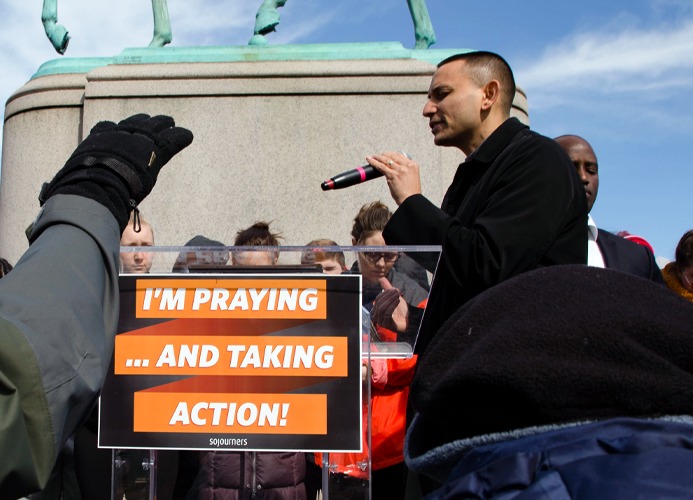 The Rev. Adam Taylor is the executive director of Sojourners. He told the authors that his organization “has partnered with the National African American Clergy Network to equip and mobilize Black clergy, with the support of other multiracial church allies, to combat voter suppression efforts in nine key states and to advocate nationally for a free, fair, and safe election.” The campaign includes “We are Watching” meetings to hold senior election officials accountable, educate congregations and communities about voting rights, and provide a moral presence outside polling sites alongside lawyers. A Baptist minister, the Rev. Taylor was previously adviser and lead of the Faith Initiative at the World Bank Group.
The Rev. Adam Taylor is the executive director of Sojourners. He told the authors that his organization “has partnered with the National African American Clergy Network to equip and mobilize Black clergy, with the support of other multiracial church allies, to combat voter suppression efforts in nine key states and to advocate nationally for a free, fair, and safe election.” The campaign includes “We are Watching” meetings to hold senior election officials accountable, educate congregations and communities about voting rights, and provide a moral presence outside polling sites alongside lawyers. A Baptist minister, the Rev. Taylor was previously adviser and lead of the Faith Initiative at the World Bank Group.
According to Taylor:
This work is centered in the core conviction of imago dei, that every person and voter is made in the very image of God. As a result, efforts to suppress the votes of communities of color both undermine the legitimacy of our democracy and assault our faith. I also do this work believing that my generation inherited the unfinished business of the civil rights struggle, which includes the ongoing struggle to protect the right to vote as a sacred and vital one and in the process help transform our democracy. At their best, faith communities often serve as the conscience of the state and a source of resilient hope—providing both moral vision and organizing infrastructure to protect the most vulnerable and empower the most marginalized.
Sheila Katz
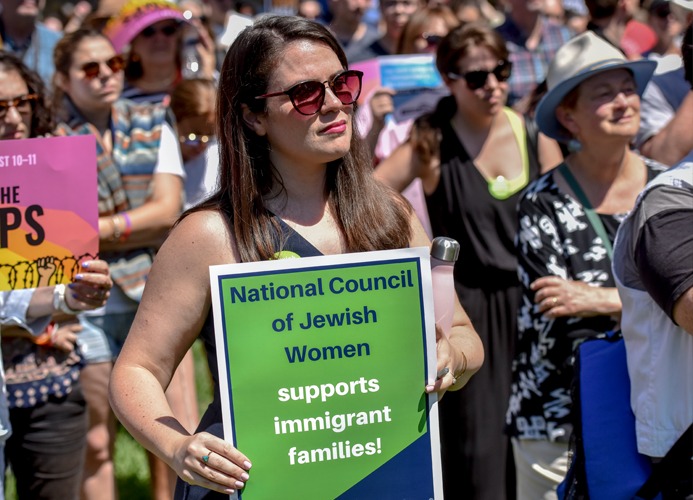 Sheila Katz is the CEO of the National Council of Jewish Women (NCJW), which is recruiting volunteers to call friends and people of voting age to register them to vote and is mobilizing its followers to ask Congress to prioritize expanding voter access in November. She told the authors that NCJW recently held its “first-ever #VoteSafe Digital Lobby Day with 800 participants from 37 states asking Congress to provide funds to ensure expanded and safe access to the polls in November.” Katz previously served for 12 years at Hillel International, where she founded MitzVote, a nonpartisan campaign that assisted 19,000 students in registering to vote and requesting absentee ballots in 2018.
Sheila Katz is the CEO of the National Council of Jewish Women (NCJW), which is recruiting volunteers to call friends and people of voting age to register them to vote and is mobilizing its followers to ask Congress to prioritize expanding voter access in November. She told the authors that NCJW recently held its “first-ever #VoteSafe Digital Lobby Day with 800 participants from 37 states asking Congress to provide funds to ensure expanded and safe access to the polls in November.” Katz previously served for 12 years at Hillel International, where she founded MitzVote, a nonpartisan campaign that assisted 19,000 students in registering to vote and requesting absentee ballots in 2018.
Katz said:
There are countless examples of Judaism calling on us to promote justice, equality, righteous work, and the recognition that every person has inherent dignity. My faith grounds me in the fight to keep our courts fair, expand voter protections, support reproductive justice and access to abortion, and ensure that religious freedom is only used as a tool to protect and never to discriminate against already vulnerable communities. People of faith have a proud and storied history of advocacy and activism in this country when it comes to fighting for a free and just society we all believe in.
The Rev. Dr. Liz Theoharis
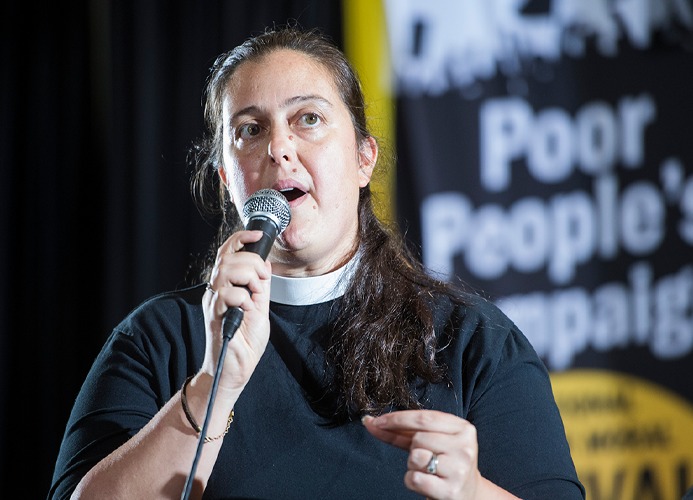 The Rev. Dr. Liz Theoharis is the co-chair of the Poor People’s Campaign: A National Call for a Moral Revival, as well as the director of the Kairos Center for Religions, Rights, and Social Justice at Union Theological Seminary. Both organizations are engaged in a campaign called “We Must Do M.O.R.E—Mobilizing, Organizing, Registering and Educating.” The campaign aims to build electoral power among the 140 million poor and low-income people in the United States. It is also committed to challenging voter suppression and protecting the right to vote. Theoharis is an ordained minister in the Presbyterian Church (USA) and has spent more than two decades organizing with low-income communities in the United States.
The Rev. Dr. Liz Theoharis is the co-chair of the Poor People’s Campaign: A National Call for a Moral Revival, as well as the director of the Kairos Center for Religions, Rights, and Social Justice at Union Theological Seminary. Both organizations are engaged in a campaign called “We Must Do M.O.R.E—Mobilizing, Organizing, Registering and Educating.” The campaign aims to build electoral power among the 140 million poor and low-income people in the United States. It is also committed to challenging voter suppression and protecting the right to vote. Theoharis is an ordained minister in the Presbyterian Church (USA) and has spent more than two decades organizing with low-income communities in the United States.
Theoharis told the authors:
I was raised to see that faith must be linked to doing justice and holding those in power accountable to the people. As a Christian pastor, biblical scholar, and anti-poverty activist, I believe we are called to build a movement where everybody’s in, nobody’s out. Throughout history, it has been movements led by those most impacted by injustice and poverty, with faith communities and moral leaders as standard-bearers involved, that have fundamentally transformed society.
Mohamed Gula
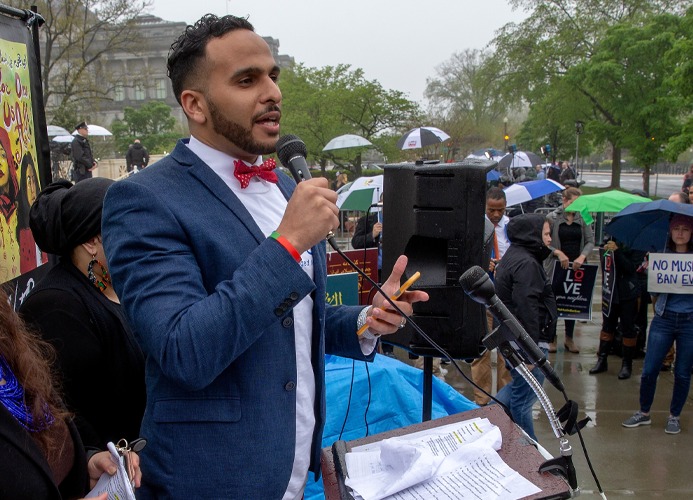 Mohamed Gula is the national organizing director for Emgage, which educates and empowers Muslim Americans. Gula runs its nationwide campaign to turn out 1 million Muslim voters in 2020. The Million Muslim Votes campaign is meant to bring together Muslim communities in support of the largest voter mobilization effort in history. In addition to his previous experience as an organizer and advocate for social justice, Gula co-founded the Islamic Center of Peace in Dayton, Ohio.
Mohamed Gula is the national organizing director for Emgage, which educates and empowers Muslim Americans. Gula runs its nationwide campaign to turn out 1 million Muslim voters in 2020. The Million Muslim Votes campaign is meant to bring together Muslim communities in support of the largest voter mobilization effort in history. In addition to his previous experience as an organizer and advocate for social justice, Gula co-founded the Islamic Center of Peace in Dayton, Ohio.
Gula said:
I am driven by the idea that the prophets were community organizers. They energized their communities to become more active members of society. They focused on fixing broken social systems, bringing about meaningful change to people’s lives, and empowering vulnerable and oppressed populations. It is my belief that civic engagement is more than just voting; it’s about making a positive difference in one’s community, collectively. I also believe that faith communities are important in the work of building a more inclusive democracy because they provide a moral framework that revolves around building community and promoting justice and understanding that goes beyond partisan lines and the political tribalism that has created the division we see today.
María Teresa Kumar
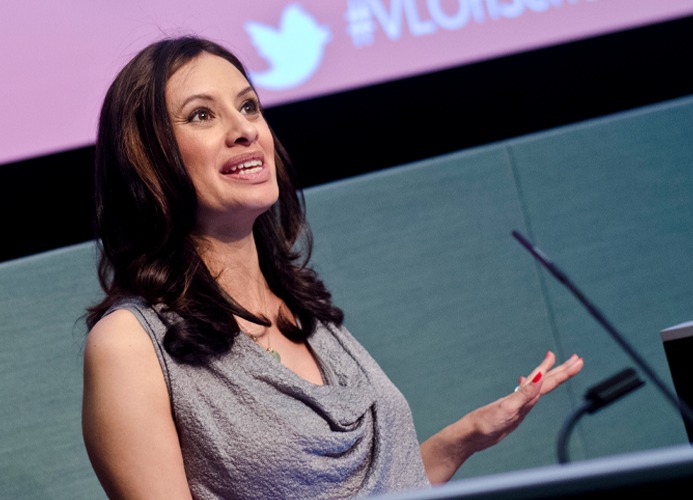 María Teresa Kumar is the founding president and CEO of Voto Latino, which focuses on educating and empowering a new generation of Latinx voters. Under her leadership, Voto Latino has already directly registered hundreds of thousands of new voters and is in the process of achieving its goal of registering 500,000 voters in the 2020 election cycle. Kumar has spoken about her Catholic values and Catholic communities’ voter turnout. She told the authors:
María Teresa Kumar is the founding president and CEO of Voto Latino, which focuses on educating and empowering a new generation of Latinx voters. Under her leadership, Voto Latino has already directly registered hundreds of thousands of new voters and is in the process of achieving its goal of registering 500,000 voters in the 2020 election cycle. Kumar has spoken about her Catholic values and Catholic communities’ voter turnout. She told the authors:
Equity and justice are driving principles of my faith, and they inform my work for a more just world. Giving someone agency to determine who represents their most basic needs and addressing systemic inequities allows us to strive for fairness. It is this motivation I have in making sure people are adequately represented and cared for and that no one is left behind or discarded when it comes to matters of equity and accessibility. We all have an obligation to care and look out for each other. That belief is driven by my Catholic faith but also my faith in people.
Amy Sullivan
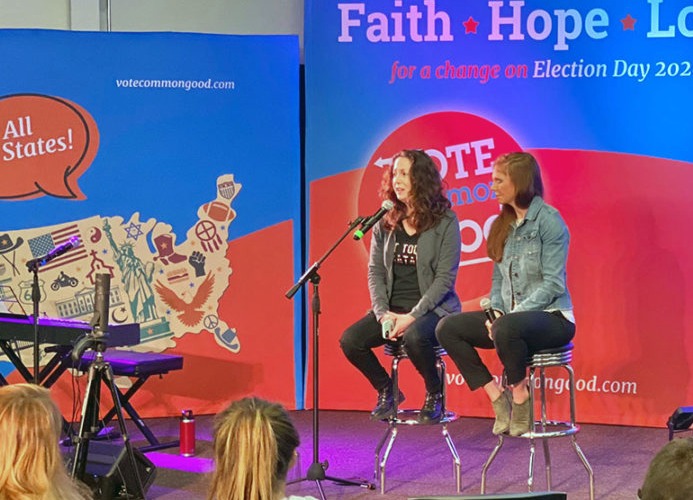 Amy Sullivan is strategy director at Vote Common Good and the founder of This Is My Story, an initiative to empower and equip Christian women to make voting an act of faith. A graduate of Harvard Divinity School, Sullivan is a veteran journalist who has covered religion and politics for Time, Yahoo!, Washington Monthly, and National Journal. She is the author of The Party Faithful: How and Why Democrats Are Closing the God Gap.
Amy Sullivan is strategy director at Vote Common Good and the founder of This Is My Story, an initiative to empower and equip Christian women to make voting an act of faith. A graduate of Harvard Divinity School, Sullivan is a veteran journalist who has covered religion and politics for Time, Yahoo!, Washington Monthly, and National Journal. She is the author of The Party Faithful: How and Why Democrats Are Closing the God Gap.
According to Sullivan:
Toxic theology has shaped our politics for too long, and women will be the ones to disrupt its hold on voters. As a journalist, I reported on well-intentioned but very defensive efforts by progressives that said, “You can be progressive without losing your faith!” We flip that around and talk about how broadening your definition of your neighbor often deepens your faith. Faith communities understand the power elections and politics have on the common good.
The Rev. Ben McBride and Joseph Tomás McKellar
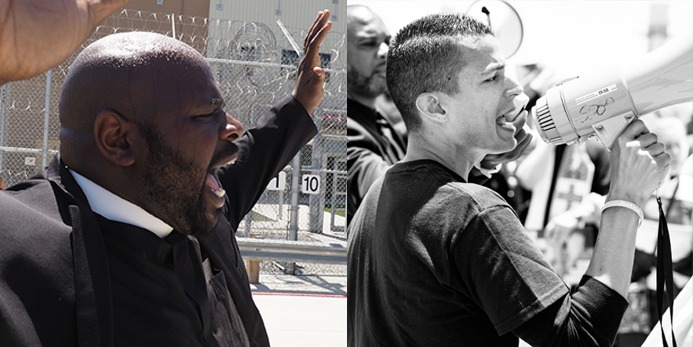 The Rev. Ben McBride and Joseph Tomás McKellar are the co-directors of PICO California. McKellar told the authors that, “During this historic election year, PICO California has launched ‘Faith Votes CA,’ a grassroots community leader-driven movement to turn out 1 million new and infrequent voters in low-income congregations and communities, along with our partners in the Million Voters Project.” Prior to their leadership of PICO California, the Rev. McBride founded the nonprofit Empower Initiative and McKellar served as the founding director of Faith in New York. They are respectively based in Oakland and Los Angeles.
The Rev. Ben McBride and Joseph Tomás McKellar are the co-directors of PICO California. McKellar told the authors that, “During this historic election year, PICO California has launched ‘Faith Votes CA,’ a grassroots community leader-driven movement to turn out 1 million new and infrequent voters in low-income congregations and communities, along with our partners in the Million Voters Project.” Prior to their leadership of PICO California, the Rev. McBride founded the nonprofit Empower Initiative and McKellar served as the founding director of Faith in New York. They are respectively based in Oakland and Los Angeles.
McKellar said:
My Mexican Catholic faith tradition teaches me the truth that every human being is sacred because all of us were made in God’s image. Therefore, I am called to labor for the creation of laws and structures that allow God’s creation to live with full dignity, inclusion, opportunity, and peace. At their best, faith communities are engines of liberation and revolutionary love. Faith communities challenge their members to become more generous, more interdependent, more empathetic versions of themselves. Through millions of individual encounters with their neighbors, members of faith communities can inspire a new generation of voters to actively seek structural belonging, and as the Hebrew Prophet once said, “live to see the goodness of God in the land of the living.”
McBride said:
Faith communities, and particularly Black churches, have been at the vanguard for pulling America forward through democracy and faithful protest against racism. My faith calls me to speak up for those whose voices are muzzled by the powerful and to call us all to vote the interests of those most marginalized around us. That is how we will become a more perfect union.
The Rev. Ashley Horan and Nicole Pressley
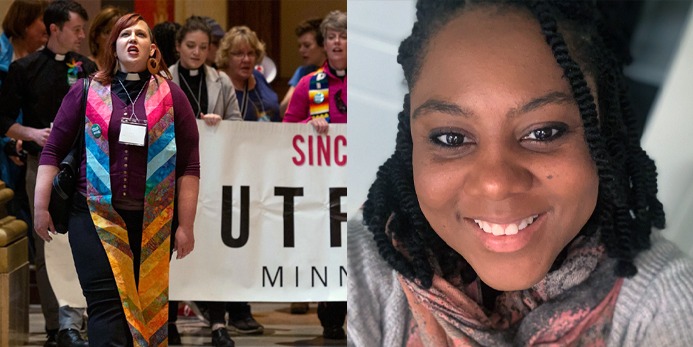 The Rev. Ashley Horan is the organizing strategy director of the Unitarian Universalist Association, and Nicole Pressley is the national organizer for UU The Vote. They work to engage Unitarian Universalist individuals, congregations, and institutions in bringing their values to the public square in the 2020 elections, through deep partnerships with local and national front line organizations. They both identify as queer people of faith and have a track record of local community organizing. Previously, the Rev. Horan was the executive director of the Minnesota Unitarian Universalist Social Justice Alliance, and Pressley was an organizer and communications strategist working with the Unitarian Universalist Congregation of Atlanta.
The Rev. Ashley Horan is the organizing strategy director of the Unitarian Universalist Association, and Nicole Pressley is the national organizer for UU The Vote. They work to engage Unitarian Universalist individuals, congregations, and institutions in bringing their values to the public square in the 2020 elections, through deep partnerships with local and national front line organizations. They both identify as queer people of faith and have a track record of local community organizing. Previously, the Rev. Horan was the executive director of the Minnesota Unitarian Universalist Social Justice Alliance, and Pressley was an organizer and communications strategist working with the Unitarian Universalist Congregation of Atlanta.
Pressley said:
As a Unitarian Universalist, I believe that practicing our values means being in deep relationship with our communities and neighbors is the primary mechanism for lasting change. Voting is one of many political acts that create change. However, the organizing and relationship building we do in the course of electoral work is the site of the necessary ideological and spiritual transformation that allows us to imagine and call forth a new world together. Faith communities have a moral mandate to facilitate caring and cooperative relationships to reach beyond the walls of our congregations in order to move hearts and minds in service to justice and liberation.
The Rev. Horan added:
As a Unitarian Universalist, I am grounded both in a deep belief in the inherent worth and dignity of all people and an understanding that because of that inborn belovedness we all possess, every person should have a voice and a vote in building a world in which all of us can be free and flourish. Faith communities are some of the only truly multigenerational, values-based organizations in society today, and progressive people of faith have immense potential not only to leverage our power and our values in service of liberation in this moment but to grow and sustain the souls of future generations as they grow into the leaders who will be called to address the deepest problems facing our society today.
Conclusion
These diverse faith leaders are working this year to get out the vote. As a critical part of civil society, religious communities offer a clear moral voice in support of civic engagement, the peaceful transfer of power, combating voter suppression, and protecting the ability of marginalized communities to participate in elections. Their work feeds the soul of our nation and contributes to a well-functioning and healthy democracy.
Guthrie Graves-Fitzsimmons is a fellow with the Faith and Progressive Policy Initiative at the Center for American Progress. Maggie Siddiqi is the director of the Faith and Progressive Policy Initiative.